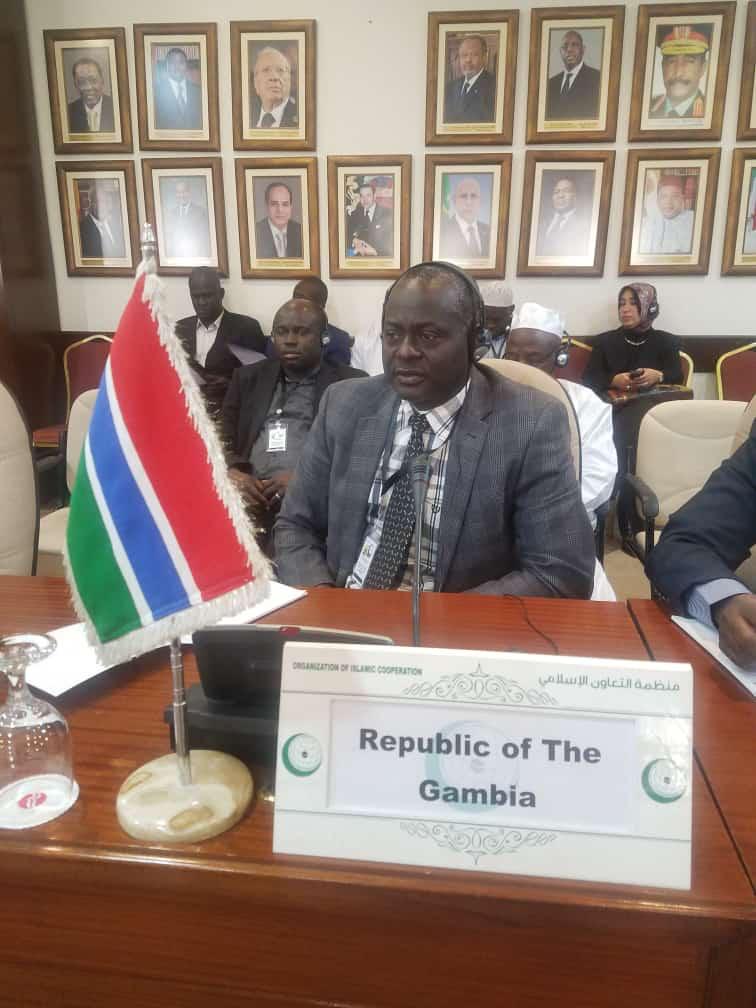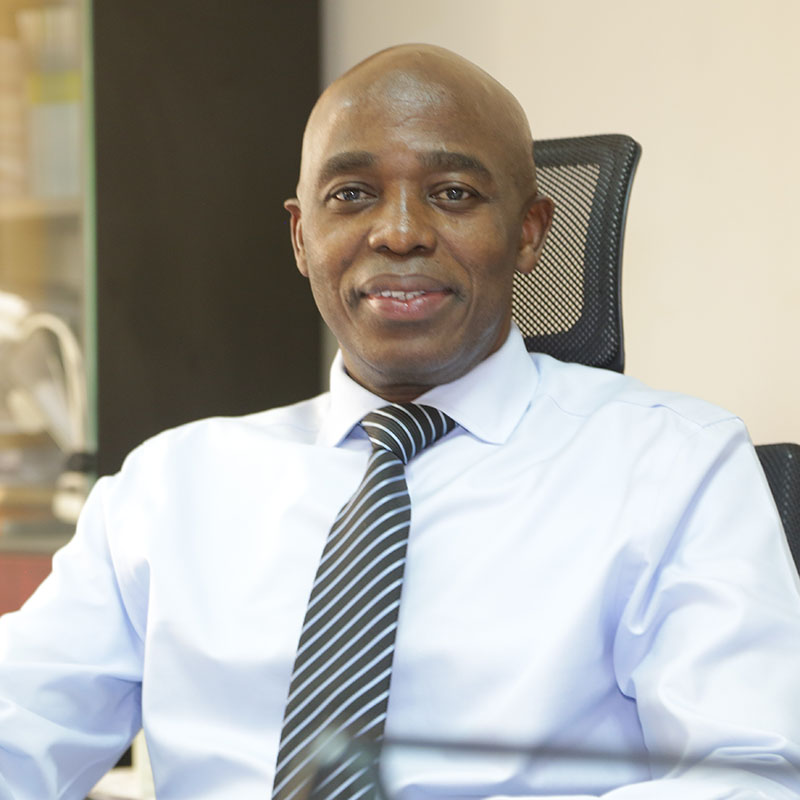Recently, it has been announced that the Ministry of Finance has retained the Potomac Group, a debt advisor institution, to help manage the country’s towering debt problem. In general, we should welcome the desire to seek out expertise when faced with a daunting challenge. Indeed, by all indications, the Potomac Group is a reputable institution with high quality experts in their field.
While the qualification of the Potomac Group is a necessary condition for their success, it is far from sufficient. To evaluate whether this hired consultant will lead to the desired results, let us reflect on the nature of our debt problem. If our debt management problem calls for new solutions that are not easily identifiable, then hiring an international consultant to provide some fresh insights would be highly useful. Unfortunately, this is not the situation we are faced with in The Gambia.
The problem in The Gambia is that the solutions to our debt management problem are well known but what we have instead is an implementation failure. As you read this article, there are currently numerous consultancy reports that are in the file cabinets of the Ministry of Finance detailing all sorts of recommendations about how to address our debt problem. There will be no new recommendation that will be filed by the Potomac Group that has not already been submitted to the Ministry of Finance at some point over the past couple of years.
As a public service, I am going to summarize some of the recommendations from these earlier reports to save the Ministry of Finance from wasting our limited resources on another expensive consultant. I will take the liberty of adding some of my own recommendations where necessary.
There are couple of things to acknowledge. The Gambia is not undergoing any unique experience here. Numerous countries have in the past, for good and bad reasons, taken on lots of debt. The challenge of managing this debt is a road well-traveled. All it requires is learning from the experiences of other countries. And we, as a country, have had lots of opportunities to do that. What we have been missing is both the will and the capacity to implement lessons that are right before our eyes.
To manage our debt situation, we have two levers: the revenue and the expenditure sides. Unfortunately for us, there is very little we can do on the revenue side in the short to medium term. Our tax revenues as a share of GDP is currently about 16%, which is quite high by developing country standards. This does not mean that the GRA is extremely efficient at tax collection. Rather, it means that the agency is too focused on short-term revenue collection maximization at the expense of expanding the tax base, which can generate even larger revenues in the future. There are some reforms that can be done on the margins to increase revenues to some extent in the immediate future.
For example, generous tax holidays extended by GIEPA to investors can be removed. Research has shown that it is the business enabling environment, rather than tax holidays that are key in drawing foreign direct investments (FDI). But realistically, this will not bring in a large amount of revenues given the size of the FDI.
Raising revenues locally and domestically through the debt markets may temporarily increase revenues in the short-term but only at the expense of greater debt burden in the future. We have already raised a large amount of debt domestically through treasury bills. Apart from borrowing from foreign commercial banks, The Gambia not in a position to issue bonds internationally if we are not prepared to pay prohibitive interest rates to encourage subscriptions. In the recent past, high domestic borrowing resulted in extremely high interested rates, which nearly choked off private sector access to finance.
In the long terms, there are other opportunities for the country to access other revenue sources. For instance, the country receives a significant amount in remittances annually. In fact, as of 2015, remittances reached USD 181 million, almost as high as our total tax revenue. Once we develop our capital market, the country would be in a position to harness these sources and can help finance a large number of development problems. But this is not something we can do in the short to medium term.
This leaves us mainly with the expenditure side. We can do a lot more here if we are willing and the Ministry of Finance is led by capable people at the very top. Let me go through the various fiscal consolidations that are within our means and quite feasible:
- Abolishing our Ministry of Defense outright can save us about D700 million dalasi annually. Add to that a significant reduction in our Ministry of Foreign Affairs budget, we can save a significant amount of money. The savings from the Ministry of Foreign Affairs will largely come from closing unnecessary Gambian missions abroad of which there are a lot. Further reductions in expenditures can be achieved by combining the Ministry of Basic Education with the Ministry of Higher Education. Similarly, the Ministry of Fisheries can be combined with that of the Ministry of Forestry. Savings from combining these ministries will come largely from getting rid of expensive duplicated positions that would become redundant. The combined savings of just these measures can add up to at least 5% of our GDP, which can almost cover our overall fiscal balance which is a negative number.
- The state-owned enterprises (SOEs) are a massive drain on our resources, unlike many other countries where there are important sources of revenues. Some SOEs such as NAWEC are essential because, by their nature, the private sector cannot adequately or efficiently provide the relevant goods or services. Hence, it is important for the state to maintain ownership due to such SOEs’ provision of quasi-public goods. However, SOEs such as Gamcel do not need to be government-owned and operated. Gamtel provides a service that is being adequately and efficiently provided by private firms such as Qcell, Africell and Comium. The only reason why the government should have a stake in an enterprise such as GNPC or Gamcel is to make money. So, it does not make sense for the government to be losing money by operating such SOEs as we are currently experiencing. A significant amount of money can be saved by selling off government stake in Gamcel, and probably other SOEs as well.
- The government currently is carrying a large amount of debt through the SOEs. The government should immediately stop providing guarantees for the debts of these SOEs. Many African countries have started this practice. These debts become highly burdensome when these contingent guarantees are called. This absence of guarantees will also signal to these SOEs that budget constraints exists, and they can be binding. Furthermore, the government should refrain from reflexively appointing life-long career civil servants to run these SOEs. These entities may be state-owned but are supposed to be run commercially, and therefore we must turn to the private sector to find the right individuals through a process that emphasizes competency. Finally, only few of the seats of the board of these institutions should be reserved for the government officials. Most of the permanent secretaries put on these boards do not know how to provide effective oversight of the SOEs.
- The government should avoid huge projects that will require massive public spending that will not be sufficiently covered by returns generated from those projects. Such projects could be very enticing. This includes the floated idea of a Barra-Banjul bridge. For obvious reasons, it would be highly helpful to have such a bridge but a careful look would reveal that projected traffic on that bridge (especially in the context of the recent completion of the TransGambia Bridge) would not generate the revenues to cover even the cost of construction, much less bring any positive returns.
- Finally, since the success of all these measures depend on our ability to implement reforms, no outcomes will be achieved if the Ministry of Finance is not led by a capable individual. As a result, a key requirement of our debt management is not only removing Mambury Njie as the Minister of Finance but replacing him with a capable individual. It should have been obvious by now that Mambury Njie is unqualified for the position. Without the confidence that comes with competency for the position, Mambury will not have the backbone to provide the necessary advice to politicians when needed. That President Barrow still leaves Mambury in charge of this important ministry is a serious indictment of his judgement.
The above is definitely not the totality of the savings that can be achieved by restructuring our expenditures but the impact on the debt would be highly significant. There is simply no need to hire yet another expensive outside consultant when the solutions are right before our eyes.
Author; Dr. Ousman Gajigo
Ousman Gajigo is an economist. He has held positions with the African Development Bank, the UN, the World Bank and Columbia University. He holds a PhD in development economics. He is currently an international consultant and also runs a farm in The Gambia.




